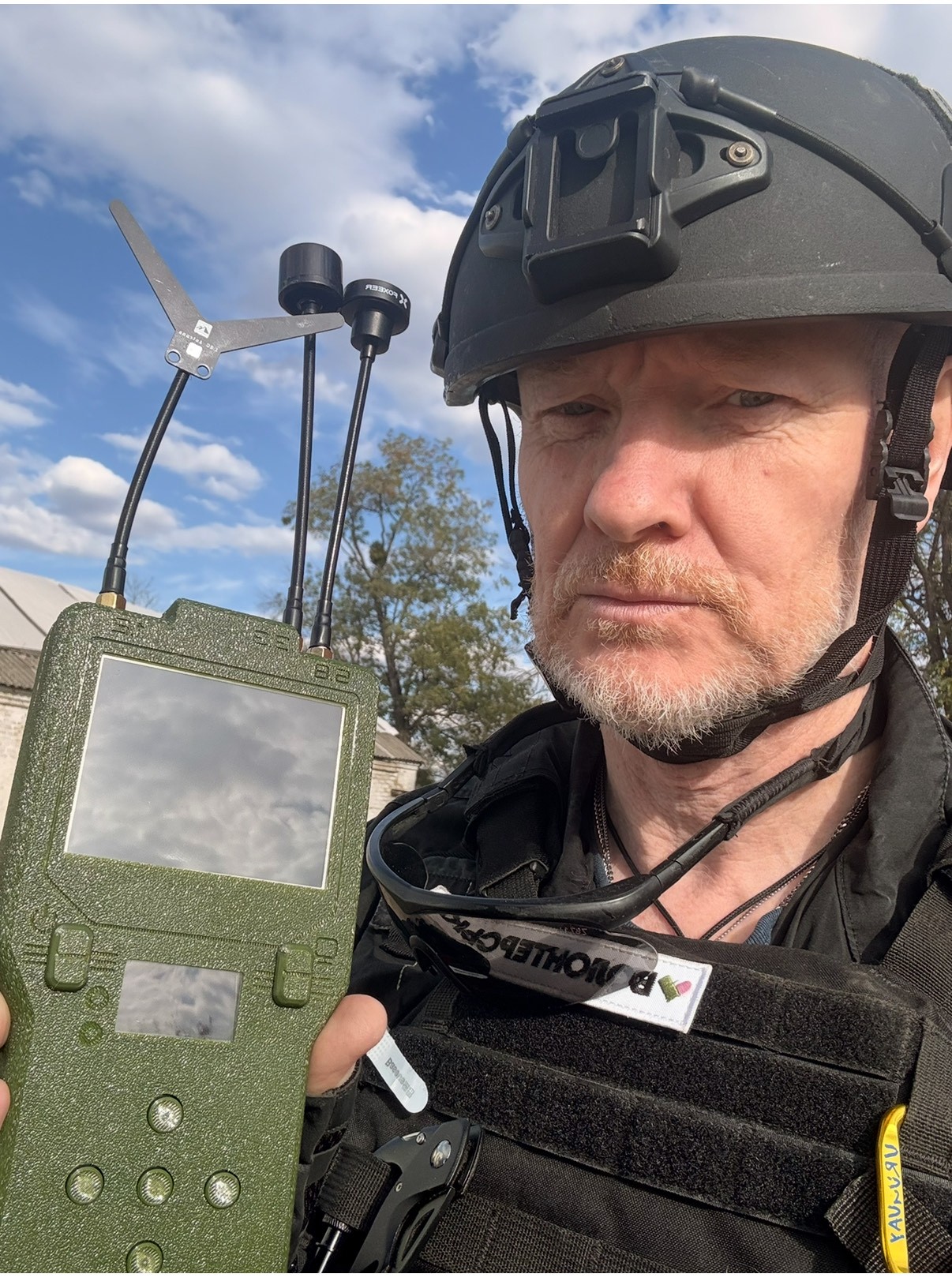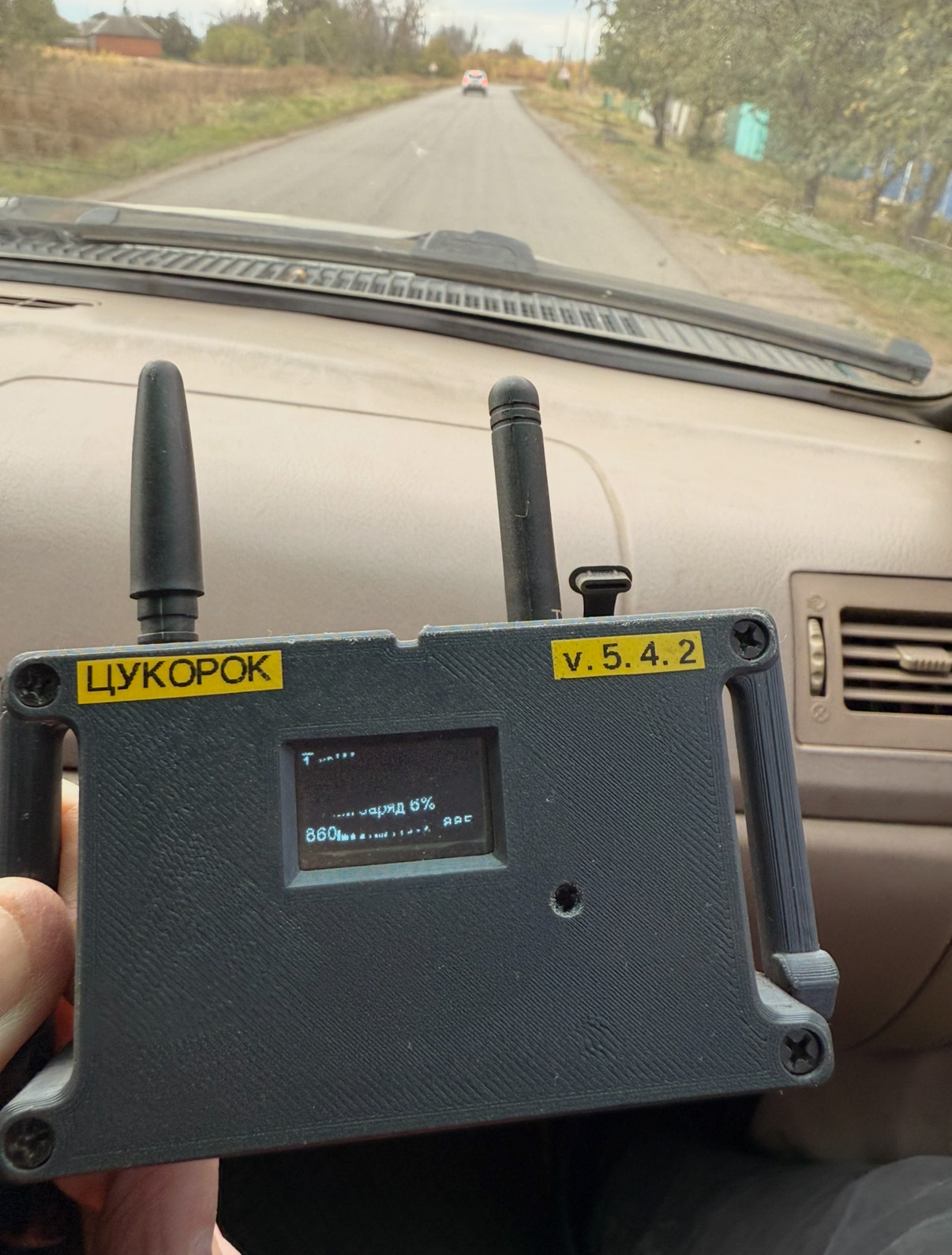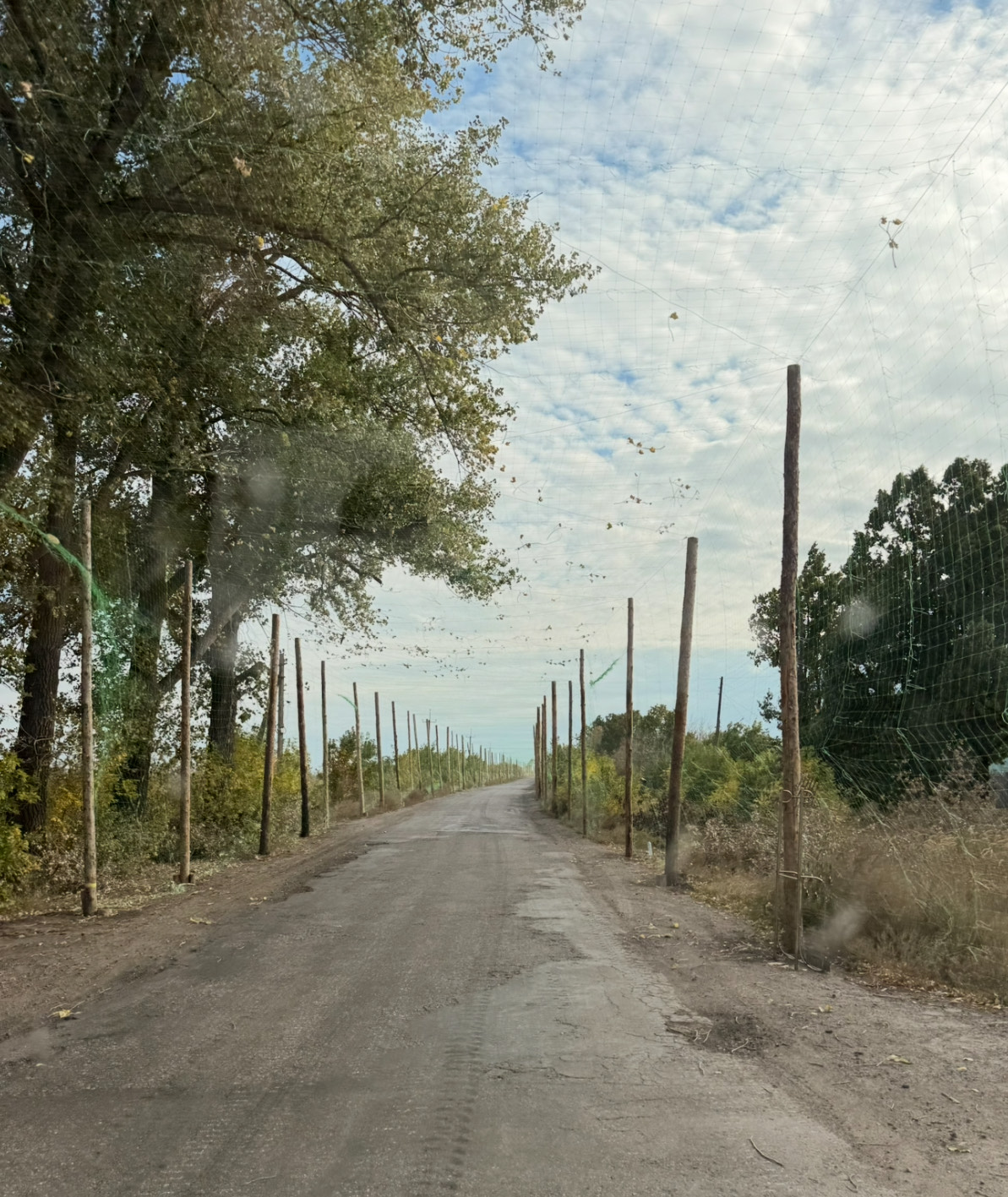Ukrainians At The Front Line Counter New Russian Drone Capabilities
Professor Brian Dooley

Things change quickly in Russia’s war on Ukraine. Which army controls a village, whose side President Trump is on this week, and the latest proposals to end the fighting are all constantly shifting.
But nothing moves faster than the ongoing revolution in drone technology, which is affecting how people at the front line, and across the country, have to live.
A year ago, when I joined local activists evacuating civilians from communities under fire in the northeast, we would be constantly looking up through the car windows, scouring the skies for drones.
This week, driving from Kharkiv City to the frontline communities of Borova, Prykolotne, Hrushivka and Klynova Novoselivka, we stared down instead at the newly-invented drone detectors that scan above us, beeping when a drone appears.
There are far more drones than a year ago, and they are much more powerful. The range of the cheapest First Person View (FPV) drone is now well over ten miles, compared to a couple of miles last year.
A year ago today one of the team I work with when I am in Kharkiv, Roza Na Ruke, was targeted and killed by a Russian FPV drone. Tigran Galustyan was driving near Pokrovsk to evacuate civilians. He was in the team’s van, clearly marked as a humanitarian vehicle, when he was tracked and killed by a missile attacking the roof of the van.
In January 2025, with the help of LLM students from Queen’s Law School, we used Open Source Technology to document the drone attack that killed Tigran in a report called Targeted and Killed.
Now the threat from drones is much greater. Some vehicles screw scrambling devices onto the top of their vehicles which disrupt the frequencies used by the drone operators. These devices look like upside down buckets and are an effective way of evading attacks.
The dilemma for humanitarian workers is that these devices are mainly used by military vehicles - so if one is mounted on your car, Russian forces may assume you are a valuable target. And they offer no protection against a new type of drone which connects to its operator by a miles-long fibre optic cable and are virtually impossible to evade.
A few months ago, in the front line city of Kupiansk, a drone zeroed in on and attacked one of our cars as we were evacuating people. Very luckily, everyone was in a house helping those being evacuated to gather their belongings when it was hit. No one was hurt, and only the car windows were blown out.
There are various kinds of handheld drone detectors which we use when we go to the front line. The expensive one costs around £500, and has three antennae that constantly search between frequencies for drones. It has a small screen which mostly flickers with visual static, but if it produces a focused picture of the sky, it means a drone has spotted you and the chance of an attack is higher.
The cheaper “sugar cube” model is about £150, is about the size of a cigarette packet, and has no screen. Like the bigger version, it displays a constantly-changing percentage of how likely it is that a drone has spotted you. Most of the time, it hovers between 10 and 20 percent, which is fairly safe. Into the high 90s means you’re almost certainly about to be hit with a missile.
On Thursday last week, when we went to get an elderly couple from a frontline village near Zolochiv, our device reached an alarming 87 percent, but we all got out unscathed.
Along the roads at the front line, Ukrainian troops are building anti-drone tunnels made of netting. Near the village of Borova, for at least six miles, 25-foot wooden poles are planted every five yards or so on either side of the road, holding up green football-goal size mesh nets which cover the sides and create a net canopy. Luckily, Borova sits on the edge of a huge pine forest that provides a ready supply of the trees needed. By a rough estimate, about 3,500 wooden poles are needed for a five-mile net tunnel.
These tunnels are new, a recent counter to the ever-improving drone capabilities. A year from now, if the war is still on, the drones will be more capable, more powerful, and more lethal.
Professor Brian Dooley
Brian Dooley is an Honorary Professor of Practice at the Mitchell Institute and a Senior Advisor at Human Rights First, a US-based NGO. He specialises in working with Human Rights Defenders (HRDs) in conflict and post-conflict contexts, and was senior advisor to the UN Special Rapporteur on HRDs, Mary Lawlor, from 2020 to 2023. His most recent work has been in the Hong Kong revolution and on Russia’s war on Ukraine. He has also written two books related to the conflict in Northern Ireland, including a comparative study of the civil rights movements in the US and Northern Ireland.

Prof Brian Dooley holding Drone Detector

Drone Detector

Drone Scrambling Device

Drone Netting Tunnel
Media
